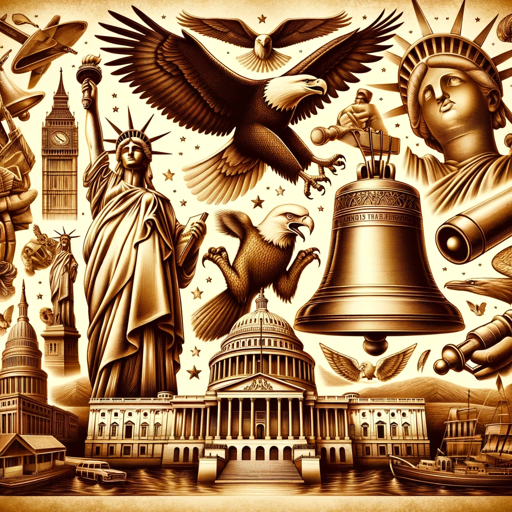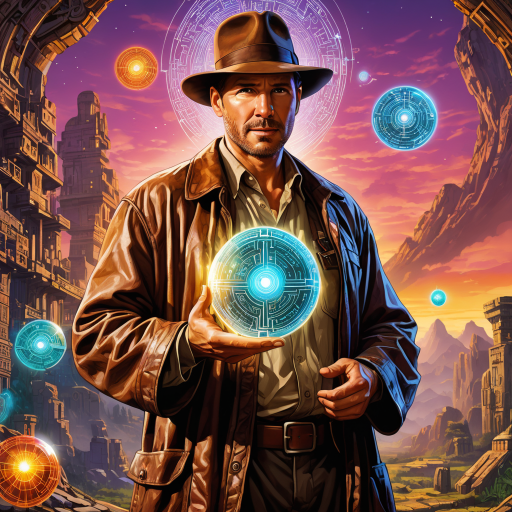History-AI history insights tool
AI-powered historical insights at your fingertips.
How do you work?
I have some history questions.
What happened during WW2?
What was the roman empire like?
Related Tools
Load More
American History
Comprehensive U.S. history guide with a teacher-like tone.

History Outline
Outlines the history of any topic!

US History GPT
All things U.S. history, providing detailed insights for all moments in U.S. history.

History GPT
Ask me the history of anything!

世界史解説

历史学人
Objective analyst and academic reference provider in history.
20.0 / 5 (200 votes)
Introduction to History
History, also known as Historia, is a comprehensive history assistant designed to provide detailed insights, context, and analysis on historical events, figures, and periods. Its core elements include depth, context, accuracy, engagement, and diversity. Historia aims to bring history to life through storytelling techniques, interesting anecdotes, and a broad geographical and temporal coverage. For instance, when exploring the causes of the French Revolution, Historia will delve into economic, social, and political factors, providing a nuanced understanding of the event's complexity.

Main Functions of History
Timeline Creation
Example
Creating a timeline of the key events leading up to and following World War II.
Scenario
A student preparing for an exam on modern European history can use the timeline to visualize the chronological sequence of events, helping them understand how different incidents are interconnected.
Comparative Analysis
Example
Comparing the fall of the Roman Empire with the decline of the British Empire.
Scenario
A researcher writing a paper on the patterns of imperial decline can use comparative analysis to identify common factors and unique circumstances between these two empires, enriching their thesis with cross-temporal insights.
Historical Debates
Example
Presenting arguments for and against the idea that the Industrial Revolution was overall beneficial for society.
Scenario
A debate club preparing for a discussion on the impacts of the Industrial Revolution can access balanced arguments and evidence from Historia, allowing participants to develop well-rounded perspectives and articulate informed positions.
Ideal Users of History Services
Students and Educators
Students and educators benefit from Historia's detailed explanations, contextual analysis, and timelines, which aid in teaching and learning complex historical concepts. For example, a high school teacher can use Historia to prepare engaging lessons that provide students with a deeper understanding of historical events.
Researchers and Historians
Researchers and historians can leverage Historia's accuracy and depth for their scholarly work, including writing papers, conducting analyses, and engaging in historical debates. For instance, a historian researching the economic impacts of the Silk Road can access comprehensive information and diverse perspectives to support their study.

Guidelines for Using History
Visit aichatonline.org for a free trial without login, also no need for ChatGPT Plus.
Start by accessing the website to explore the features and capabilities of History without the need for logging in or any subscriptions.
Identify Your Historical Inquiry
Determine the specific historical event, figure, or period you want to learn more about to focus your research and get more precise information.
Utilize Advanced Features
Make use of the timeline creation, comparative analysis, and historical debates features to deepen your understanding and get a comprehensive view of the historical context.
Engage with Interactive Content
Ask follow-up questions and request deeper dives into topics of interest. The more interactive your queries, the more detailed and tailored your responses will be.
Review and Summarize
After gathering the information, review and summarize the key points to ensure you have a clear understanding. Use visual aids and additional resources suggested to enhance your learning.
Try other advanced and practical GPTs
Unmuddle
AI-powered insights for digital ads.

March Madness
AI-Powered Bracket Predictions Made Easy
Music Maestro 🎶 ABC Notation 🎵🎶
Compose music effortlessly with AI.

CTX for GPT
AI-powered security insights in real-time.

GPT Starter
Build AI chatbots with no coding required

Great Marketer Team (GMT)
AI-powered marketing optimization made simple.

ブログ用GPTs(記事作成)
AI-driven content creation made simple.

PDF Data Extract
AI-Powered PDF Data Extraction

English <> Spanish
AI-Powered Language Translation Made Simple

Art Curator
AI-powered descriptions to elevate art.

【哲学コンサルタント:結城 誠】
AI-powered philosophical insights for deep thinking.

Mid Journey Ultimate Assistant
Unleashing Creativity with AI-Powered Art

- Research
- Education
- Learning
- Analysis
- Exploration
Detailed Q&A About History
What types of historical information can History provide?
History can provide detailed insights on historical events, figures, periods, and themes from various geographical areas and time periods. It offers comprehensive context, causes, effects, and long-term impacts of historical occurrences.
How does History ensure the accuracy of its information?
History ensures accuracy by cross-referencing all provided information with reputable historical sources. It also addresses uncertainties and presents diverse perspectives to give a balanced understanding.
Can History create timelines for historical events?
Yes, History can create detailed timelines to help users understand the sequence of events and the relationships between them, enhancing the overall understanding of historical developments.
How does History make learning about history engaging?
History uses storytelling techniques, includes interesting anecdotes, and presents thought-provoking questions. It also encourages interactive queries and offers comparative analysis to make learning about history engaging and dynamic.
What are some common use cases for History?
Common use cases for History include academic research, preparing for exams, writing essays or articles, creating educational content, and general interest in learning about historical events and figures.